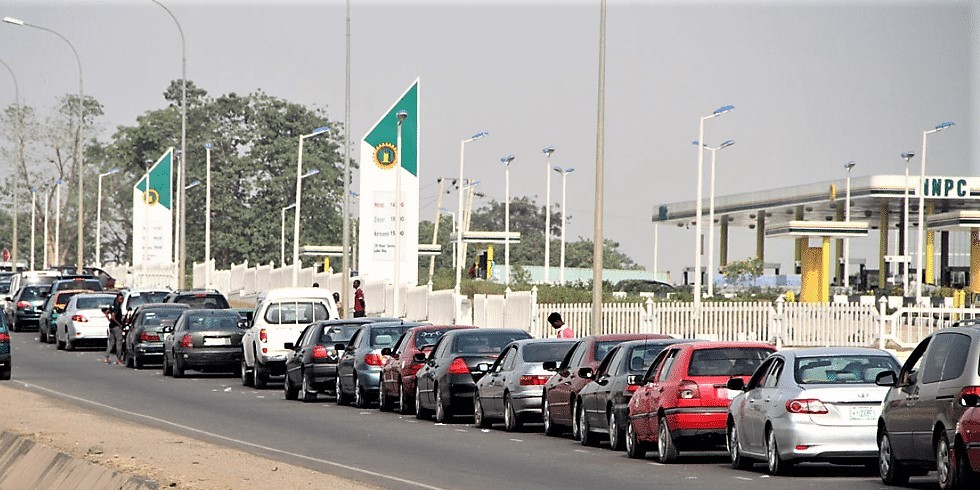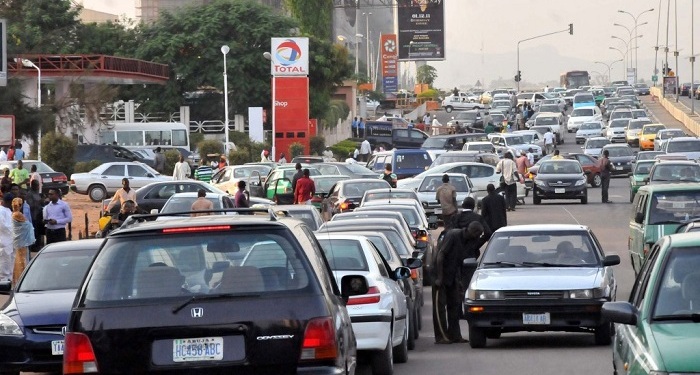
Fuel scarcity in Kano metropolis has persisted with motorists queueing daily at filling stations before buying PMS.
Our correspondent who observed the situation reports that the scarcity of the commodity is causing a lot of hardship for motorist and other road users.
Some motorists decried the long hours spent before buying fuel at the rate of 185 Naira per litre.
Abdul Yunusa , a tricycle operator and Abdulkareem Mohammed, a truck Driver said they always spend a minimum of three hours on the queue, trying to buy the PMS at government stipulated price.
“we’ve been on the for the past four hours and we are not even sure if we will get the commodity, it is so unfortunate the situation we are in this country, we are really suffering”
On the other hand, PMS remains available without queues at filling stations selling the commodity at the rate of 290 Naira per litre.
All efforts to get in touch with the IPMAN Chairman Kano Chapter, Alhaji Bashir Danmalam proved abortive.
Radio Nigeria recalled that over the weekend IPMAN issued a statement in abuja , where it stated that the association had no hand in the scarcity of the product.
Mr. Femi Adelaja, IPMAN Mosinmi depot Chairman, Ogun State, in a statement at the weekend, said petrol is not available in any of the Nigerian National Petroleum Company (NNPC) depots across the country.
He said the ex-depot price of petrol is now N220 a litre across private depots in Lagos.
According to him, marketers resort to buying the product from private depots, which sell the product at exorbitant prices.
He, therefore, attributed the current scarcity to Federal government’s and the Nigerian National Petroleum Company (NNPC) failure to make the products available for its members at affordable prices.
Motorists, business community, and other stakeholders reiterated the need for government and other relevant authorities to expedite action in ensuring the lingering scarcity is addressed.
Abdullahi Jalaluddeen







